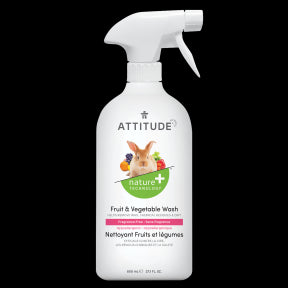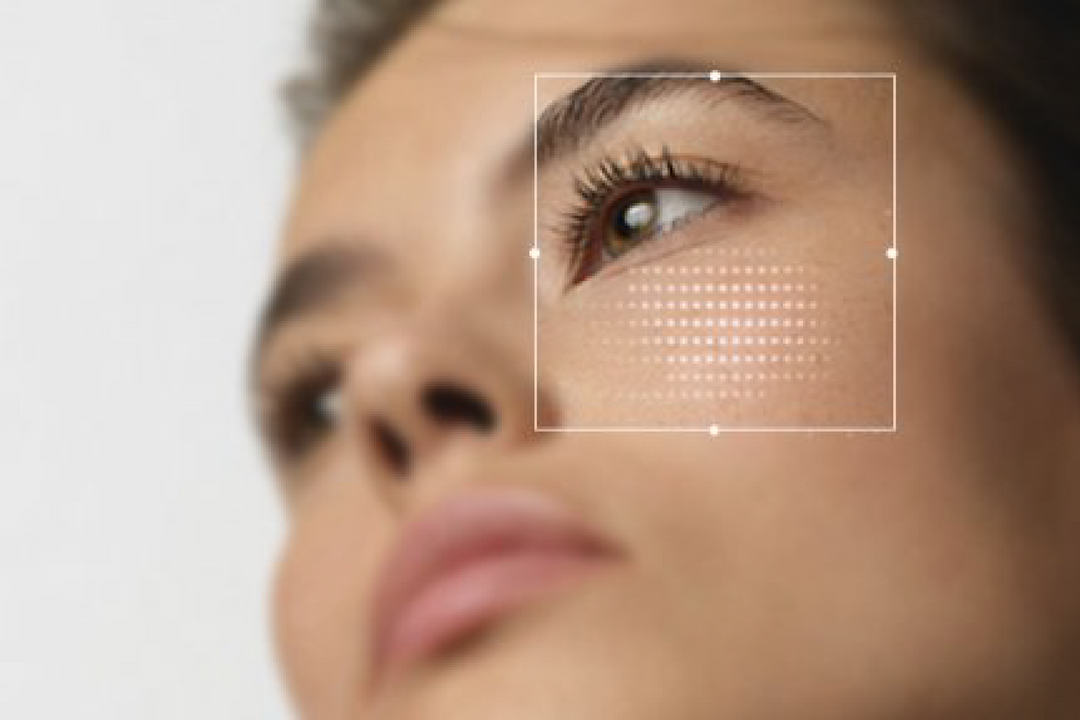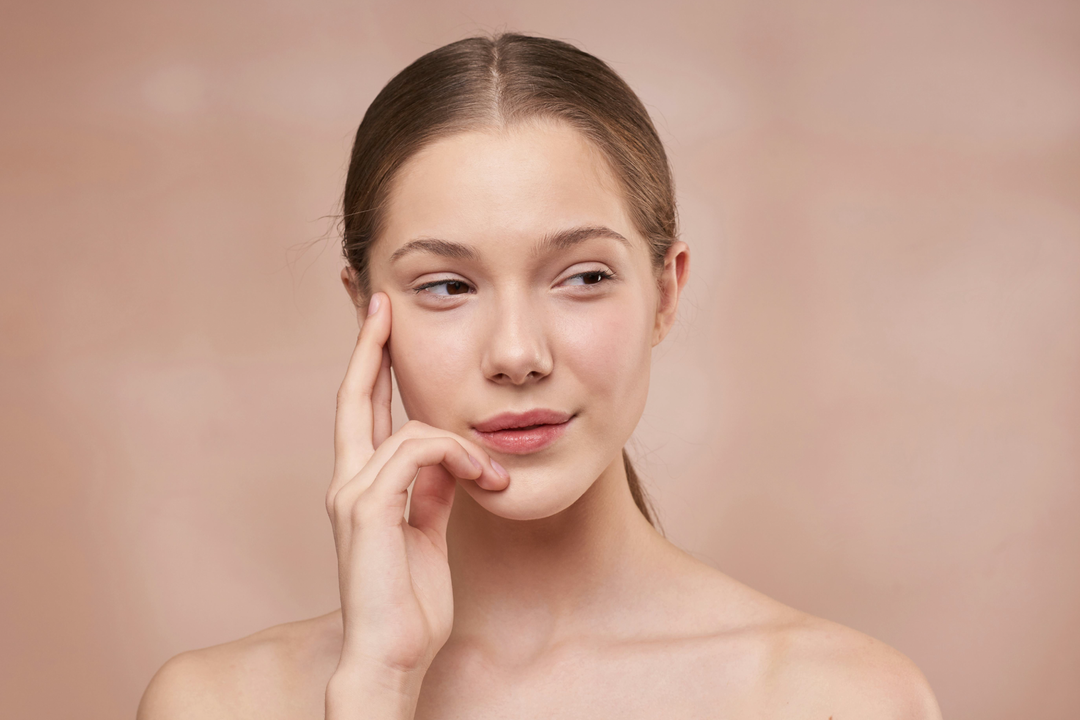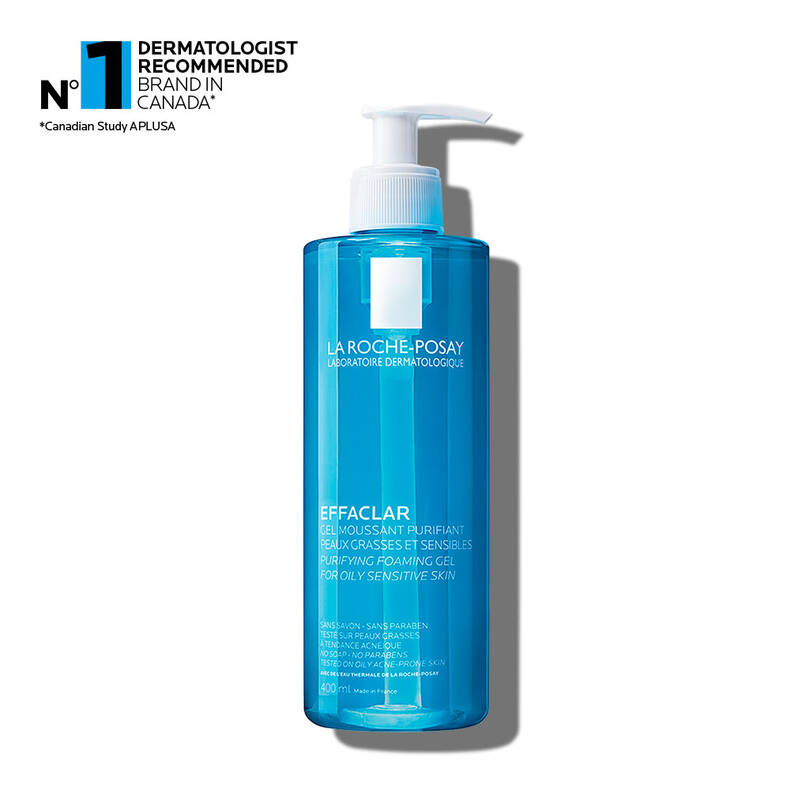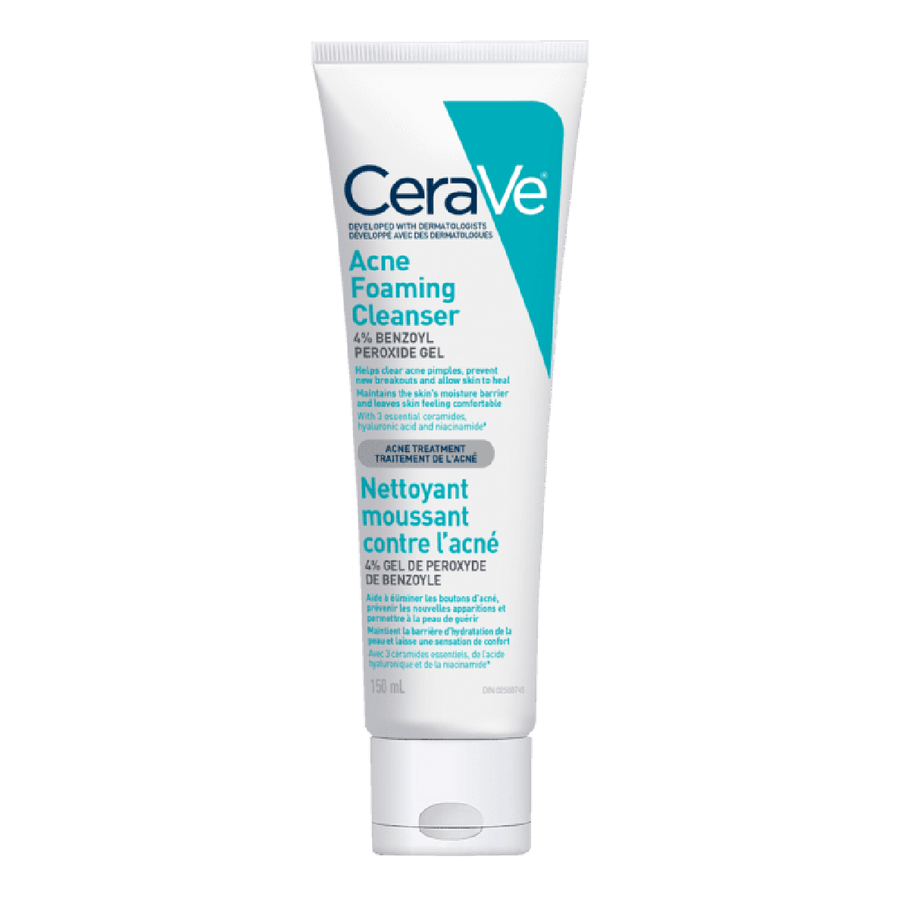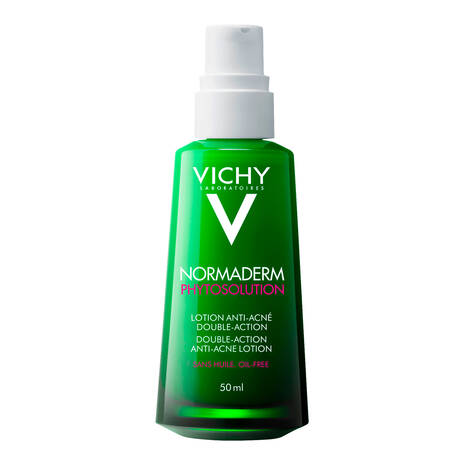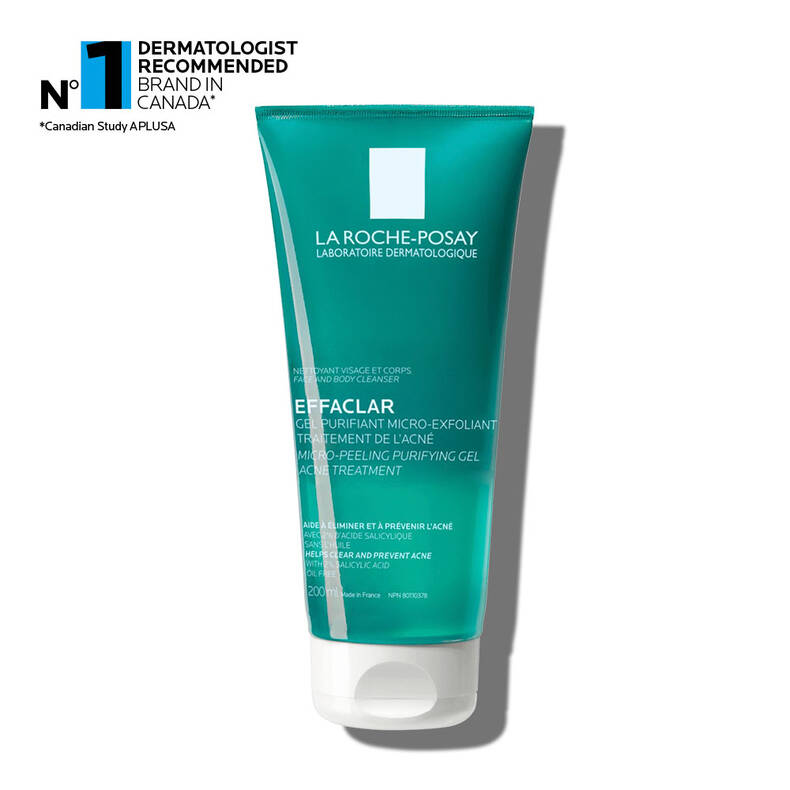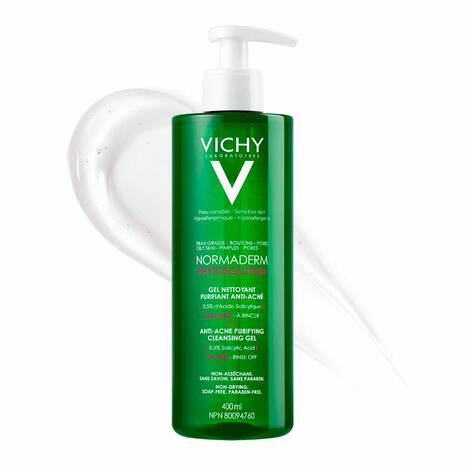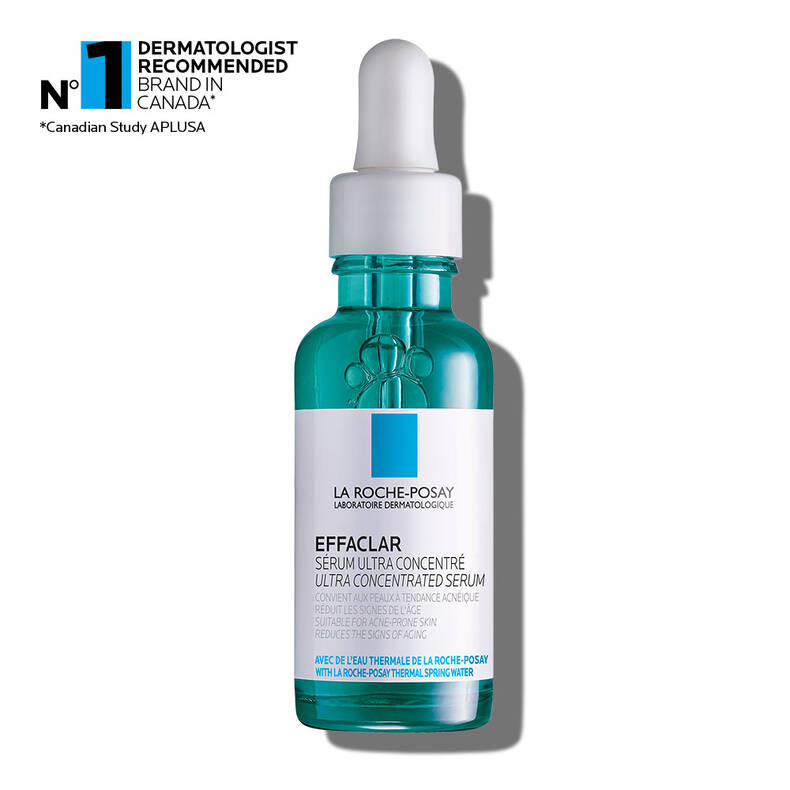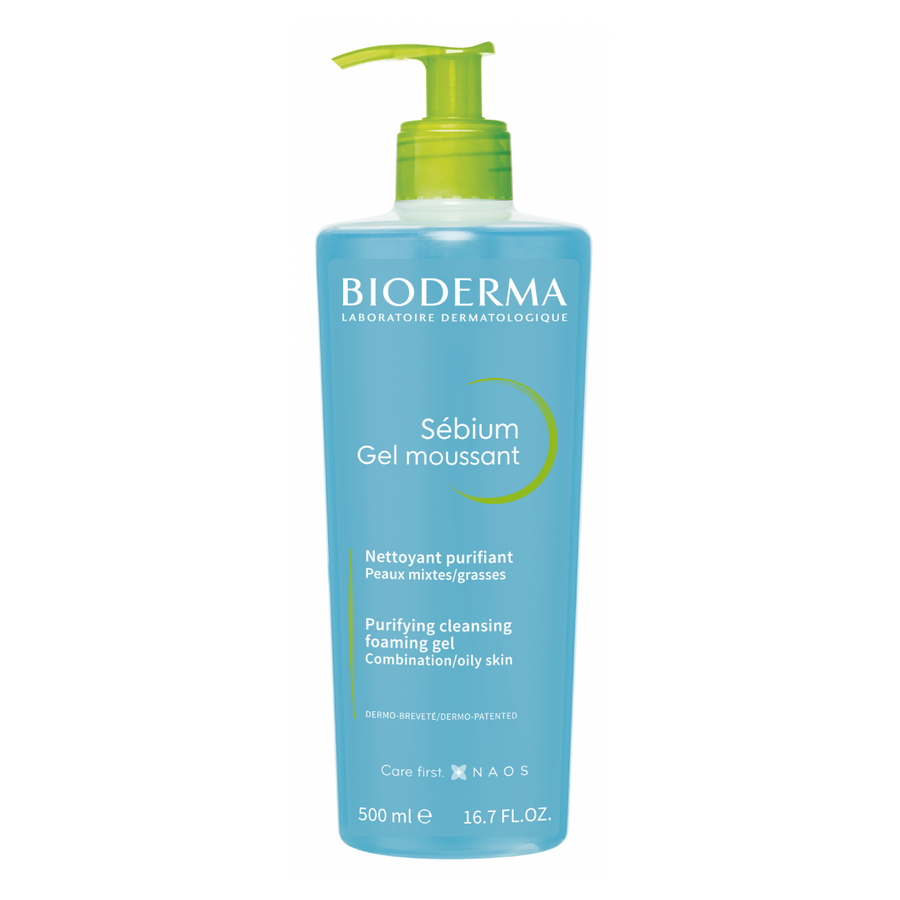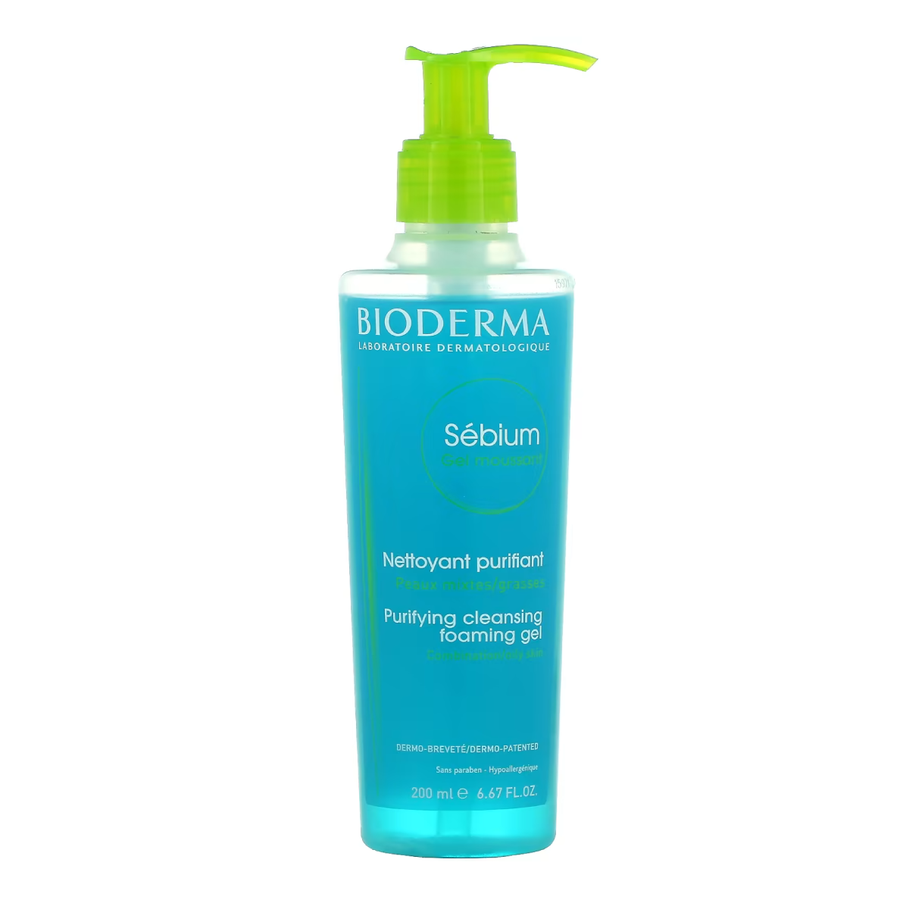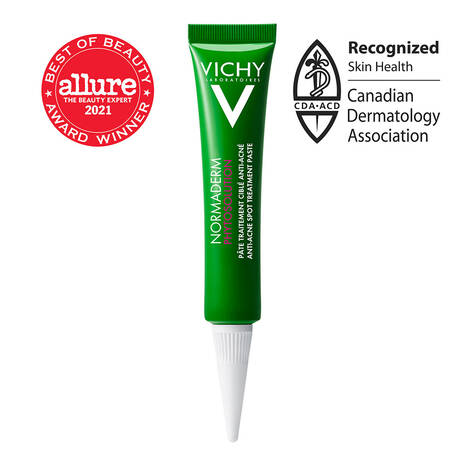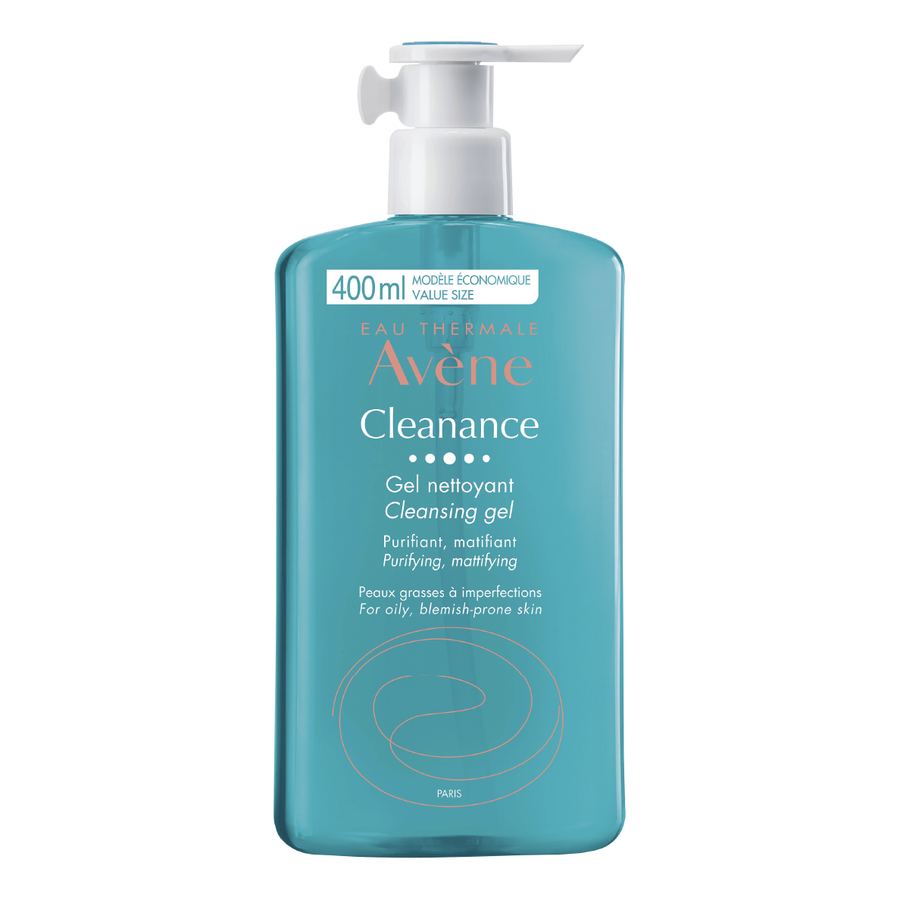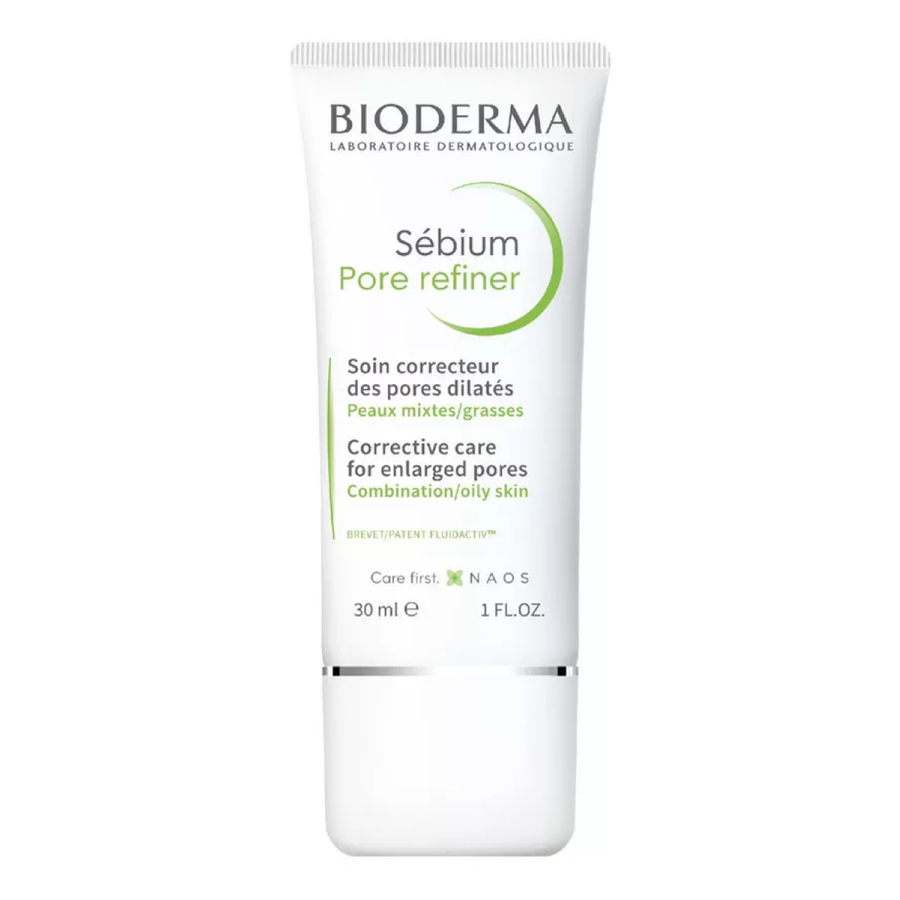The Ultimate Routine for Acne-Prone Skin
The Ultimate Routine for Acne-Prone Skin
Navigating the world of skincare can be daunting, especially when dealing with acne-prone skin. It's a journey that requires patience, consistency, and the right products.
This guide is designed to help you establish an effective acne-prone skin routine. It's a comprehensive roadmap to clearer skin, tailored to those who struggle with breakouts.
We'll delve into the importance of a consistent skincare regimen, highlighting key steps and products. From the gentle cleansing power of La Roche-Posay Effaclar Purifying Foaming Gel to the acne-fighting prowess of CeraVe Acne Control Gel, we've got you covered.
But skincare isn't just about products. We'll also explore lifestyle factors, diet, and stress management techniques that can impact your skin's health.
So, whether you're a skincare novice or a seasoned pro looking for new tips, this guide is for you. Let's embark on this journey to healthier, happier skin together.
Understanding Acne-Prone Skin
Acne-prone skin is a challenge many face, regardless of age. It's characterized by frequent breakouts, clogged pores, and excess oil production. Understanding the root causes of acne can be key to managing it effectively.
Acne is influenced by several factors, including hormones, genetics, and lifestyle. Oily skin, common in acne sufferers, results from overactive sebaceous glands producing too much sebum. This excess oil mixes with dead skin cells, clogging pores and leading to breakouts.
It's important to remember that not all acne is the same. Types vary, with some experiencing blackheads, others cystic acne. This variation requires a personalized approach to treatment.
The environment can also play a significant role in acne development. Pollutants and humidity levels can exacerbate breakouts, making consistent care crucial. A well-rounded skincare routine can help mitigate these factors.
Ultimately, understanding your skin's unique needs is the first step in crafting an effective skincare regimen. This understanding is crucial to transforming acne-prone skin into healthy, clearer skin.
The Importance of a Tailored Skincare Routine
Creating a skincare routine tailored to your skin's needs can transform acne-prone skin. This targeted approach means using products that specifically address the root causes of your acne.
A tailored regimen minimizes irritation by avoiding harsh ingredients that can worsen breakouts. Instead, it focuses on gentle yet effective solutions designed for sensitive or oily skin.
Consistency in using a customized routine helps maintain balance and protects the skin against flare-ups. Over time, this dedication can lead to significant improvements in skin clarity and health.
Identifying Your Skin Type
Identifying your skin type is an essential first step in selecting suitable skincare products. Acne-prone skin often falls into the oily category, but it can also be dry or combination.
Oily skin is characterized by a shiny appearance and larger pores. If you're dealing with more severe breakouts or constant oiliness, products tailored for oily skin can be crucial.
If your skin feels tight or flaky, you might have dry acne-prone skin. A moisturizing routine focused on hydration and balance can be beneficial. Understanding these nuances helps in choosing the right skincare regimen, ensuring optimal results for clear and healthy skin.
Step 1: Gentle Cleansing
Gentle cleansing is the foundation of any effective acne-prone skin routine. Harsh cleansers can strip the skin of essential oils, leading to irritation and increased breakouts. Instead, opt for a mild cleanser designed specifically for sensitive and acne-prone skin.
Begin your skincare routine with a gentle cleanser in both morning and evening. This will help remove impurities without causing harm to your skin. It's crucial to avoid overly hot water, as it can strip your skin of its natural oils and cause dryness.
When cleansing, use your fingertips to apply the cleanser in circular motions. This technique ensures that your skin is cleaned thoroughly yet gently. Pat your skin dry with a soft towel to avoid unnecessary friction.
Consistent, gentle cleansing helps to maintain a balanced skin environment, reducing the likelihood of acne flare-ups. It prepares the skin for the subsequent steps in your routine, allowing treatments and moisturizers to work more effectively.
Product Spotlight: La Roche-Posay Effaclar Purifying Foaming Gel
The La Roche-Posay Effaclar Purifying Foaming Gel is an excellent choice for oily, acne-prone skin. This gel combines gentle ingredients with effective cleansing power, making it perfect for daily use.
Formulated with thermal spring water and zinc, it soothes and purifies your skin without drying it out. Users appreciate its ability to control excess sebum, minimizing acne-causing oil and shine.
The gel's non-comedogenic formula ensures that pores remain unblocked, reducing the chances of further breakouts. Its foam texture gives a refreshing feel, making it a popular choice among those with sensitive skin.
Step 2: Exfoliation (1-2 times per week)
Exfoliation is vital for maintaining clear, healthy skin. It helps remove dead skin cells, preventing clogged pores that can lead to acne. However, over-exfoliating can cause irritation, so it should be limited to 1-2 times a week.
Selecting the right exfoliator for your skin type is crucial. Avoid harsh scrubs that can damage your skin barrier and lead to inflammation. Instead, choose a gentle chemical exfoliant formulated for acne-prone skin.
Exfoliate in the evening to allow your skin time to regenerate overnight. Always follow up with a moisturizer to keep your skin hydrated and soft. It helps in soothing any potential irritation caused by exfoliation.
Consistent, appropriate exfoliation supports cell turnover and leaves your skin smooth and radiant. It enhances the effectiveness of other skincare products by allowing them to penetrate more deeply.
Product Spotlight: CeraVe Acne Control Gel
CeraVe Acne Control Gel is an excellent choice for those with acne-prone skin. This lightweight gel combines effective exfoliating ingredients with soothing agents to treat and prevent breakouts without causing irritation. Formulated with 2% salicylic acid, it helps to unclog pores, reduce blackheads, and control excess oil. It also contains glycolic and lactic acids, which gently exfoliate the skin's surface, promoting a smoother and clearer complexion. The gel's non-comedogenic formula ensures it won't clog pores, making it suitable for daily use in an acne-prone skincare routine. With the addition of CeraVe's signature ceramides, it helps restore and maintain the skin's natural barrier while providing long-lasting hydration.
Step 3: Toning
Toning is a critical step that helps balance your skin's pH levels. It removes any residual makeup or cleanser left behind after washing your face. A good toner can also help prepare your skin to absorb subsequent treatments more effectively.
For acne-prone skin, choose a toner with ingredients like witch hazel or tea tree oil. These components help to control excess oil and reduce inflammation. Opt for alcohol-free toners to avoid drying out your skin.
Toning should be part of your daily skincare routine, used after cleansing both in the morning and at night. This consistency ensures that your skin remains balanced and less prone to breakouts.
Product Spotlight: Dr. Hauschka Clarifying Toner
Dr. Hauschka Clarifying Toner is designed to balance and refresh oily, blemished, and combination skin. This gentle yet effective toner supports the skin's natural processes, helping to minimize the appearance of pores and reduce excess oil. Formulated with botanical extracts like anthyllis and calendula, it soothes irritation while promoting a clear, healthy complexion. The lightweight, non-greasy formula preps the skin for moisturizers and other treatments, enhancing their absorption. Incorporating this toner into your daily routine can help restore your skin's natural balance and improve overall texture. It's an excellent choice for those seeking a plant-based solution to support clearer, calmer skin.
Step 4: Acne Treatment
Acne treatment is a vital part of any acne-prone skin routine. It's important to choose products that target acne without aggravating the skin. Look for treatments containing active ingredients like salicylic acid, benzoyl peroxide, or retinoids. These components are known for their effectiveness in reducing acne.
Applying acne treatment requires precision. Focus on areas most prone to breakouts rather than overloading the entire face. This targeted approach minimizes irritation while effectively tackling blemishes. Patience is key; results may take several weeks to become noticeable.
Incorporate your acne treatment after cleansing and toning. This placement ensures that the active ingredients penetrate deeply into the skin. It's crucial to follow up with a moisturizer to maintain hydration levels and prevent dryness.
Product Spotlight: Vichy Normaderm Phytosolution Acne Spot Treatment
Vichy Normaderm Phytosolution Acne Spot Treatment is specially formulated to target and reduce acne blemishes while soothing irritated skin. This powerful yet gentle treatment works to minimize breakouts, control excess oil, and promote a clearer complexion without drying the skin. Enriched with salicylic acid and hyaluronic acid, it penetrates deep into pores to unclog and exfoliate while providing hydration to maintain the skin's moisture balance. Vichy's Mineralizing Thermal Water helps strengthen the skin's natural barrier and soothe irritation, making it suitable for sensitive, acne-prone skin. Apply Vichy Normaderm Phytosolution Acne Spot Treatment directly to affected areas to reduce the appearance of blemishes and prevent future breakouts. Its lightweight, non-comedogenic formula absorbs quickly, leaving the skin feeling clean and refreshed. Ideal for daily use, this treatment promotes smoother, healthier skin while effectively addressing acne concerns.
Step 5: Moisturizing
Moisturizing is a crucial step, even for oily or acne-prone skin. It helps maintain the skin’s barrier and prevents overproduction of oil. Many people with acne avoid moisturizing, thinking it may worsen oiliness, but skipping this step can lead to dryness and irritation.
Opt for lightweight, non-comedogenic moisturizers that hydrate without clogging pores. These formulations balance sebum production and provide a matte finish. Products with ingredients like hyaluronic acid or glycerin retain moisture without heaviness.
Apply moisturizer after acne treatments to soothe and protect the skin. This order ensures that treatments penetrate effectively, while the moisturizer locks in benefits. A well-moisturized face can reduce the appearance of fine lines and keeps skin looking plump.
The right moisturizer can help reduce inflammation and redness associated with acne. This essential step not only supports skin health but also aids in achieving a smoother complexion.
Product Spotlight: Bioderma Sebium Hydra
Bioderma Sébium Hydra is specially formulated to hydrate and soothe skin that is weakened by acne treatments. This moisturizing cream provides intense hydration while helping to restore the skin's natural balance without clogging pores. Enriched with the Fluidactiv™ patented complex, it regulates sebum quality to prevent pores from becoming clogged. The formula also contains glycerin and ceramides, which offer deep hydration and strengthen the skin barrier, while enoxolone and allantoin help to calm redness and irritation. Apply Bioderma Sébium Hydra after your acne treatment to maintain optimal moisture levels and soothe discomfort. Its non-comedogenic, lightweight texture absorbs quickly, leaving skin feeling soft and refreshed. Ideal for daily use, this cream supports healthier, more resilient skin while combating dryness caused by acne treatments.
Step 6: Sun Protection
Sun protection is crucial for acne-prone skin. UV rays can aggravate acne and lead to pigmentation issues. Use sunscreen daily, regardless of the weather, to protect your skin from sun damage.
Choose a broad-spectrum sunscreen that shields against both UVA and UVB rays. This helps prevent premature aging and reduces the risk of skin cancer. A good sunscreen will not interfere with acne treatments.
Apply sunscreen as the final step of your morning skincare routine. It creates a protective barrier, preventing harmful rays from penetrating the skin. Reapply every two hours if you remain outdoors for long periods.
Product Spotlight: Oil-Free Sunscreens for Acne-Prone Skin
Oil-free sunscreens are ideal for those with acne-prone skin. They provide protection without adding extra sheen or blocking pores. Many of these sunscreens have a matte finish to control shine throughout the day (Vichy Capital Soleil Anti-Shine Dry Touch UV Lotion SPF 60).
Look for formulations labeled as non-comedogenic and lightweight, like La Roche-Posay Anthelios Mineral Ultra-Fluid Body Lotion SPF 50. Zinc oxide and titanium dioxide are excellent ingredients for soothing and protecting irritated skin, making Derma E SPF30 Clear Zinc Body Sunscreen an excellent choice.
These sunscreens are often water-resistant, making them suitable for outdoor activities. They help maintain skin's clarity while offering essential sun defense. Apply generously every morning to safeguard your skin's health.
Additional Tips for Acne-Prone Skin Care
A comprehensive skincare routine extends beyond products. Incorporating healthy habits can significantly impact acne-prone skin. Consider these additional tips to enhance your routine.
Firstly, pay attention to your environment. Keep pillowcases and towels clean to minimize bacteria transfer. Change them regularly to support your skincare efforts. Also, ensure that your phone screens are sanitized frequently.
Incorporate these habits into your routine:
● Avoid touching your face unnecessarily.
● Wash your hands before applying products.
● Ensure your makeup brushes are clean.
Additionally, be mindful of the skincare products you select. Opt for fragrance-free and hypoallergenic options to reduce potential irritation. Consider a minimalist approach, using fewer products that are suitable for sensitive skin.
Finally, remember that skincare is not one-size-fits-all. Personalized advice from a dermatologist can be invaluable. They can recommend specific treatments for your unique skin concerns. Don’t hesitate to seek professional guidance.
Diet and Lifestyle Adjustments
Diet plays a crucial role in skin health. Eat a balanced diet rich in nutrients like omega-3s, zinc, and antioxidants. These support skin repair and reduce inflammation.
Limit your intake of high-glycemic and dairy foods. These can exacerbate acne by impacting hormonal balance. Choose whole foods, vegetables, and fruits for a clearer complexion.
Additionally, stay well-hydrated. Drinking enough water helps flush toxins and maintain skin hydration. This supports overall skin health, keeping blemishes at bay. Pair good nutrition with regular exercise for optimal results.
Stress Management Techniques
Stress can significantly affect acne flare-ups. Finding effective management techniques is crucial for maintaining skin clarity. Begin by identifying stressors in your daily life and seek to minimize them.
Practice mindfulness or meditation. These activities help reduce stress and encourage relaxation. A calm mind can lead to a happier complexion over time.
Engage in physical activities you enjoy. Exercise releases endorphins, which naturally lower stress levels. Whether it’s yoga, walking, or dancing, movement benefits both mental and skin health. Prioritizing mental well-being is key to a holistic approach.
Conclusion: Patience and Consistency
Achieving clear skin with an acne-prone skin routine requires dedication. Consistency is crucial, as it allows products to work effectively. Changing products too quickly can disrupt progress.
Patience is equally important. Improvements may take weeks or months to become noticeable. Stick to your routine and resist the urge to change it frequently. Reliable results come with time.
Remember, skincare is a personal journey. What works for one person may not suit another. Stay committed to your routine and adjust it as needed. With patience and consistency, healthy, clear skin is attainable.






